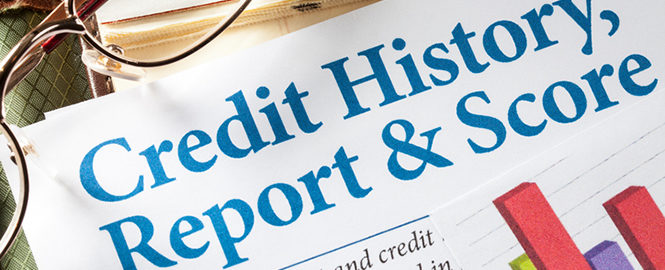Home buyers who are seeking a loan find out early-on that their credit scores play an important part in the loan approval process and in determining the interest rate that a lender offers.
What is a credit score?
When you apply for credit whether for a credit card, a car loan, or a mortgage, lenders want to know what risk they’d take by loaning money to you. FICO ® scores are the credit scores most lenders use to determine your credit risk. You have three FICO scores, one for each of the three credit bureaus: Experian, TransUnion, and Equifax. Each score is based on information the credit bureau keeps on file about you. As this information changes, your credit scores tend to change as well. Your 3 FICO scores affect both how much and what loan terms (interest rate, etc.) lenders will offer you at any given time. Taking steps to improve your FICO scores can help you qualify for better rates from lenders.
How are scores calculated?
For your three FICO scores to be calculated, each of your three credit reports must contain at least one account which has been open for at least six months. In addition, each report must contain at least one account that has been updated in the past six months. This ensures that there is enough information, and enough recent information in your report on which to base a FICO ® score on you at any given time. Credit bureau scores are often called FICO scores because most credit bureau scores used in the U.S. are produced from software developed by Fair Isaac and Company. FICO scores are provided to lenders by the major credit reporting agencies. FICO scores provide the best guide to future risk based solely on credit report data. The higher the credit score, the lower the risk. But no score says whether a specific individual will be a good or bad customer. And while many lenders use FICO scores to help them make lending decisions, each lender has its own strategy, including the level of risk it finds acceptable for a given credit product. There is no single cutoff score used by all lenders and there are many additional factors that lenders use to determine your actual interest rates.
Which parts of a credit history are most important?
Below you will find a breakdown of the approximate weight each aspect of your credit report brings to the calculation.
35% – Your Payment History
30% – Amounts You Owe
15% – Length of Your Credit History
10% – Types of Credit Used
10% – New Credit
Payment history considerations:
* Number of accounts paid as agreed
* Delinquent accounts:
– Length of past-due status
– Total number of past due items
– How long it’s been since you had a past due payment
* Negative public records or collections
Amount you owe are considered:
* How much you owe on accounts and the types of accounts you carry balances on
* How much of your revolving credit lines you’ve used (looking for indications you are maxed-out)
* Amounts you owe on installment loan accounts vs. revolving
Credit history length considerations
* Total length of time tracked by your credit report
* Length of time since accounts were opened
* Time that’s passed since the last activity
* The longer your (good) history, the better your scores
The types of credit you use
* Total number of accounts and types of accounts (installment, revolving, mortgage, etc.)
* A mixture of account types usually generates better scores than reports with only numerous revolving accounts (credit cards)
Your new credit
* Number of accounts you’ve recently opened and the proportion of new accounts to total accounts
* Number of recent credit inquiries
* The time that’s passed since recent inquiries or newly-opened accounts
* If you’ve re-established a positive credit history after encountering payment problems
* In general, checking to make sure you aren’t out there opening up numerous new accounts
Credit scoring software only considers items your credit report, but lenders typically look at other factors that aren’t included in the report, such as income, specific employment history, and the type of credit you are seeking.
What’s a Good Score?
Credit scores range from 300 to 850. The higher your score, the less risk a lender believes you will be. As your score climbs, the interest rate you are offered will probably decline.
Please email us at jasonopland@msn.com to request a complimentary copy of our Guide to Credit which includes tips for improving your score at least 50-100 pts in less than 30 days. If you’re considering financing a major purchase this guide is a must have!
The Opland Group Specializes in Real Estate Sales, Luxury Home Sales, Short Sales in; Bexley 43209 Columbus 43201 43206 43214 43215 Delaware 43015 Dublin 43016 43017 Gahanna 43219 43230 Grandview Heights 43212 Hilliard 43026 Lewis Center 43035 Marysville 43040 43041 New Albany 43054 Pickerington 43147 Powell 43065 Upper Arlington 43220 43221 Westerville 43081 43082 Worthington 43235




